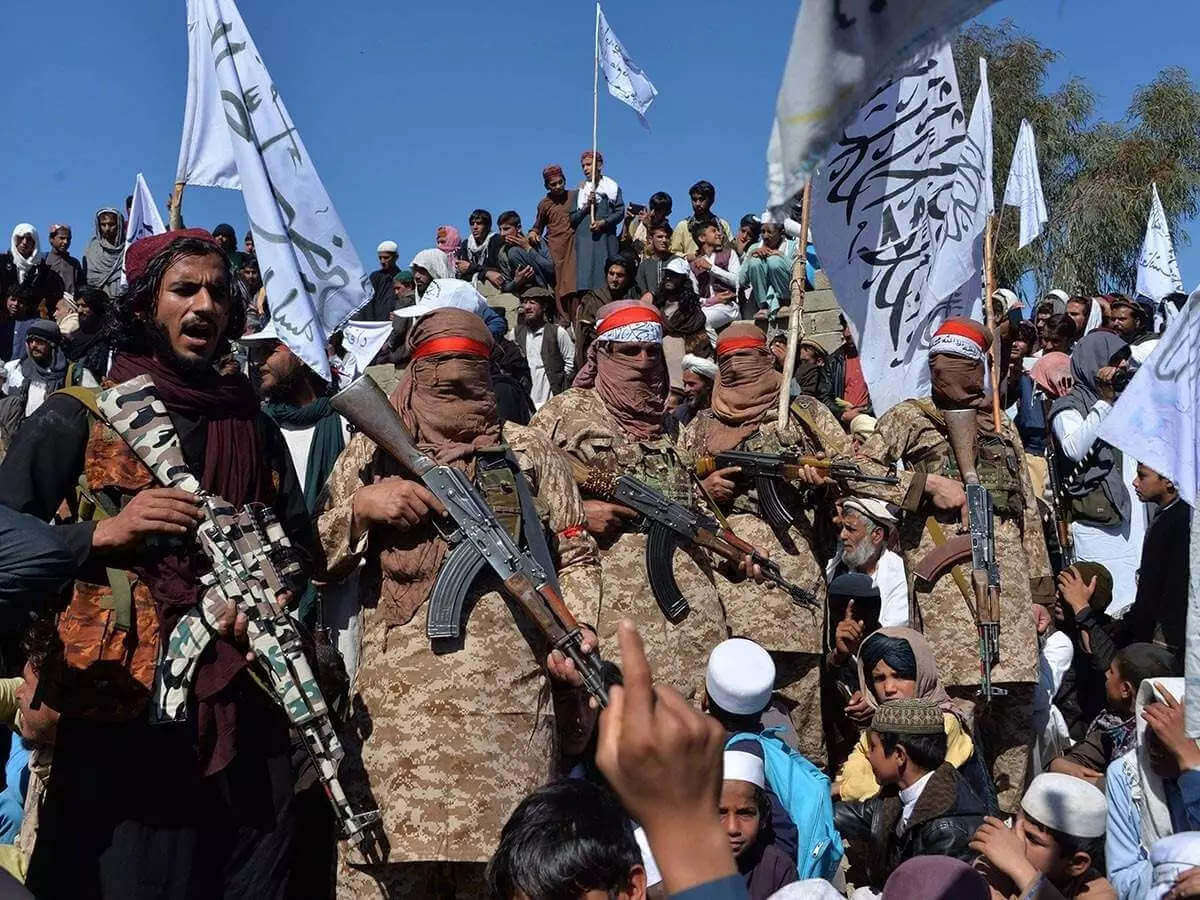The Tehreek-e-Taliban Pakistan (TTP), also called the Pakistani Taliban, declared an indefinite ceasefire during a meeting with Pakistani authorities, bringing hope for an end to violence in the tribal region along the border with Afghanistan. The two sides also agreed to continue engagements in peace talks, which are being mediated by the Afghan Taliban.
TTP spokesperson Muhammad Khurasani confirmed that the ceasefire was extended following meetings with tribal elders. He also highlighted that the Afghan Taliban had been acting as an intermediary, with discussions set to resume in Kabul in mid-June.
According to sources cited by Dawn, the decision to continue peace talks and declare a ceasefire was made after separate discussions between acting Afghan Prime Minister Mullah Muhammad Hassan Akhund, Pakistani representatives, and the TTP. Akhund expressed his support for the ceasefire and an end to the conflict, which has resulted in in the death and dislocation of thousands over the past 15 years.
Faiz Hameed is currently in Afghanistan negotiating with TTP and no information about the talks has been released. Why is the Parliament being kept in dark about this development? The coalition government needs to take the nation into confidence and explain what’s going on
— Ailia Zehra (@AiliaZehra) May 17, 2022
Both sides have agreed to set up a three-member committee with representation from the TTP and Pakistani authorities. Haqqani Network chief Sirajuddin Haqqani will act as the mediator. In the discussions, the Pakistani delegation is comprised of military and intelligence officials, and led by Peshawar Corps Commander and former Inter-Services Intelligence Director-General Faiz Hameed.
The decision extends the previously agreed upon ceasefire, which ended on May 30. The indefinite ceasefire is reflective of significant progress in talks, which have been ongoing since the beginning of last month. In May, Taliban spokesperson Zabihullah Mujahid declared a “temporary ceasefire” between the TTP and the Pakistani government, in exchange for which Islamabad released 30 TTP militants.
Talks were held in Kabul between the government of Pakistan and the Taliban Movement of Pakistan with the mediation of the Islamic Emirate. In addition to making significant progress on related issues during the talks, a temporary ceasefire was also agreed upon.1/2
— Zabihullah (..ذبـــــیح الله م ) (@Zabehulah_M33) May 18, 2022
However, several differences remain between the two sides. Pakistan has called for an end to cross-border violence, which has spiked since since the Taliban’s takeover of Afghanistan last August. Islamabad has repeatedly claimed that TTP militants have been launching attacks from Afghan soil, where they have found sanctuary since the Taliban seized Kabul. To this end, it has also requested the TTP to allow the construction of a fence along the Durand Line, which authorities claim is 93% complete.
However, the TTP continues to insist on the release of its commanders, including those facing life sentences and death sentences. Furthermore, it has demanded financial assistance for militants who were repatriated from Afghanistan and also urged Pakistani authorities to assure general amnesty for the families of Taliban fighters.
In addition, it has called on the Pakistani government bring a halt to operations in the Pashtun-dominated North and South Waziristan region along the 2700-kilometre Durand Line, an international boundary drawn to demarcate Afghanistan and Pakistan. Taliban militants in the region reject the demarcation, as they believe that the border separates and carves the land of the Pashtun community, millions of whom live in both countries.
Thread: There have been reports of talks between the TTP and Pakistan for a couple of weeks. The Taliban now confirm talks are underway *in Kabul* and that they are mediating. This is significant. https://t.co/7w0ijjK2pE
— Asfandyar Mir (@asfandyarmir) May 18, 2022
While these demands are relatively negotiable for both sides, there are two critical sticking points in negotiations.
The first is the TTP’s demand to reverse Pakistan’s constitutional amendment to merge the Federally Administered Tribal Areas (FATA) with the country’s Khyber-Pakhtunkhwa province in 2018. The government of Pakistan maintains that the region is an integral part of Pakistan.
However, the TTP insists that the region should be declared semi-autonomous. Concerningly, FATA is already being used by several foreign and domestic terror groups, including the Al-Qaeda, to launch attacks across the world.
The second issue is Pakistan’s call for the disbandment of the TTP, which is unacceptable to the group. However, Pakistani authorities have reiterated that this is necessary to bar any armed group from entering or finding a safe haven in the country. Reports suggest that the Afghan Taliban has offered its support to Pakistan for this demand.
Pakistan, TTP agree on indefinite ceasefire
— Roohan Ahmed (@Roohan_Ahmed) May 31, 2022
"The GoP, these sources said, had no issue with some of the TTP’s demand, but two major issues remained challenging: the reversal of Fata merger and the disbandment of the TTP as an armed militant group." https://t.co/P8ECwVy4X1
Against this backdrop, a 50-member jirga, a group of influential Pashtun tribal elders, will visit Kabul on the request of the Pakistani government on Wednesday. According to The News International, this will be the second such meeting with the TTP leaders.
In other related developments, a United Nations Security Council (UNSC) report revealed that the TTP “has arguably benefitted the most of all the foreign extremist groups” after the Taliban’s takeover of Afghanistan. Despite talks of peace, on March 30, the group declared that “it would launch a spring offensive against Pakistani security forces.”

